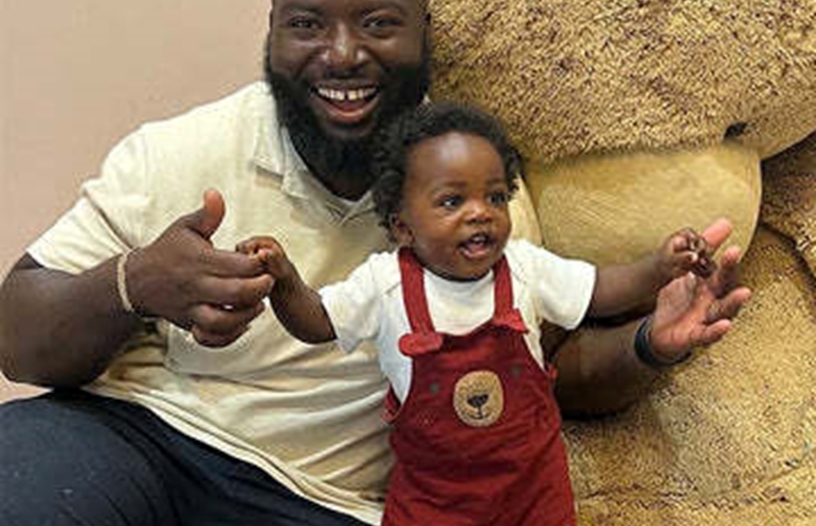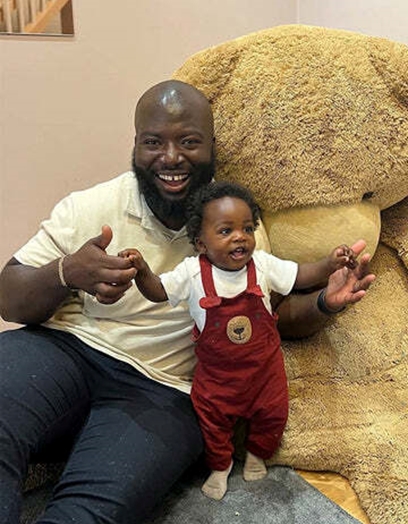
Over the last ten years, I have focused on building my career as a Compliance Professional within the asset management industry. Not once did I think I would have taken more than the UK’s statutory paternity leave of two weeks, let alone six months, to look after my baby. So, if you are a man planning or expecting to start a new family, thinking, “I would never take a prolonged period off work”, I would challenge you to dig deep and ask yourself why. Maybe this could be the best thing for you and your family.


The background that led to my decision was my wife, Anna, being approached for an exciting role at a company she had high aspirations of working for. After going through the first round of interviews, we found out we were pregnant!
While we were excited about having our first baby, we were dismayed by the timing. The more Anna thought about transitioning to a new job whilst pregnant, the more she was fearful and wanted to pull out of the interview process.
I empathised with Anna, as it was a big decision she would have to make, but I reminded her of the book she read a few years before called ‘Lean In’ by Sheryl Sandberg, which explores the professional, personal and societal hurdles holding women back in the workplace. To get more women to advance their careers, Sandberg urges women to “lean in” to their jobs, take risks and be ambitious in their professional goals while demanding more help at home.
The book resonated with us because, like me, Anna has worked hard over the last ten years and has high career aspirations. Since Anna and I graduated from university, we have supported each other through life, including how we navigated our careers, by working very well and strategically as a team.
So, after considering the pros and cons of Anna transitioning to a new company whilst pregnant, we agreed she should follow through with the interview process, and she successfully secured the job.
Anna started her new role three months pregnant, fully supported by her company, and our son Jeremiah ‘Jere’ Deku was born on 17th November 2021. Anna returned to work full time seven weeks later thanks to the support of our family, who looked after Jere during the working day so Anna and I could focus on our jobs.
The determining factor that led to Anna’s decision to return to work so soon was that she did not qualify for paid maternity leave as she had not worked for her company for the required period before having Jere.


I mentioned this during an informal conversation with my manager and she asked if I knew of the company’s Shared Parental Leave Policy. I had no idea, so I arranged a meeting with HR and was told I was entitled to six months off work with full pay.
My immediate feeling was fear! I feared taking so much time off work would affect my career progression, even though Anna and I were extremely tired as we both worked full time and had to juggle sleepless nights with a new baby. Due to how stretched and tired Anna and I were, we would often take out our frustration with each other, and the tension within our household was increasing. Still, I found it challenging to mentally process taking so much time off, maybe because there is not much information or talk about the options available to new fathers.
Because of my fears, I initially requested three months off out of my six months entitlement, but then I began to hear about other men in my company who had taken extended leave to look after their children. I contacted some of them to discuss their experience, and all the conversations were overwhelmingly positive!
They all spoke highly of the company and the support provided whilst on leave and transitioning back to work. One of the men challenged me as to why I was only taking three months off and questioned whether I thought I was doing what was best for my family. The honest truth was that I wasn’t. Our mums were probably taking on more with Jere than they should be, Anna and I were both tired and bickering a lot because of it, and all this could be alleviated if I ‘bit the bullet’.
I therefore requested to take six months off, which was well received and supported by my manager, team and department head.


I started my paternity leave very optimistic (Anna says it was more like arrogant/cocky!). I thought looking after Jere by myself during the day would be easy and full of fun because of how structured a person I am. Establishing a structure for Jere was helpful to ensure he was well fed, got enough sleep and had sufficient stimulating activities to keep him entertained – and also to keep on top of the household chores.
All seemed to be going well, but after six weeks I felt like I had run myself into the ground! There never felt like enough time in the day to get everything done! I was waking up tired, running around to ensure everything was in order and then crashing in the evening. What I hadn’t taken into consideration was that there were previously five pairs of hands looking after Jere, and I was trying to fulfil all this by myself.
Still, it became too much – something I didn’t want to admit to myself, Anna or the rest of the family. However, I picked up the courage to ask for help.
Now I have established a new structure for my week, I can manage my energy levels better and carve out time for myself to hit the gym and prioritise my physical health. Anna and I appreciate all the support from our parents, siblings and friends, and we have seen it truly takes a village to raise a child.
Through the experience so far, I have been able to:
(i) gain more of an appreciation for my wife and all the things she did that I was not aware of;
(ii) spend quality time with my son and build a powerful bond with him from such a young age;
(iii) gain more of an appreciation that fathers are equally as essential and as capable as mothers.


In my opinion, in the early stages of a child’s life, it can feel fathers are not needed because of how babies are more physically dependent on mothers. Fathers who feel disconnected may not build in the practice of being physically and emotionally available to their children as they age.
I’d therefore encourage all fathers to “lean in” to play an active role in their children’s lives from the outset. Fathers are important! Fathers are necessary! Fathers can make a huge difference!
I’d recommend all fathers take extended paternity leave (if possible) to encourage their children’s development and support their families. If you are still in doubt, I recommend readinbg the Government’s review on ‘Shared care, father’s involvement in care and family well-being outcomes’ – data does not lie.
Two key takeaways for me were:
1. Father’s involvement in childcare improves children’s emotional well-being, cognitive development and academic achievement and is good for fathers themselves; and
2. Equal division of childcare and housework amongst couples helps reduce parental stress, especially for mothers, increases relationship satisfaction, and thus decreases the likelihood of divorce/relationship dissolution.